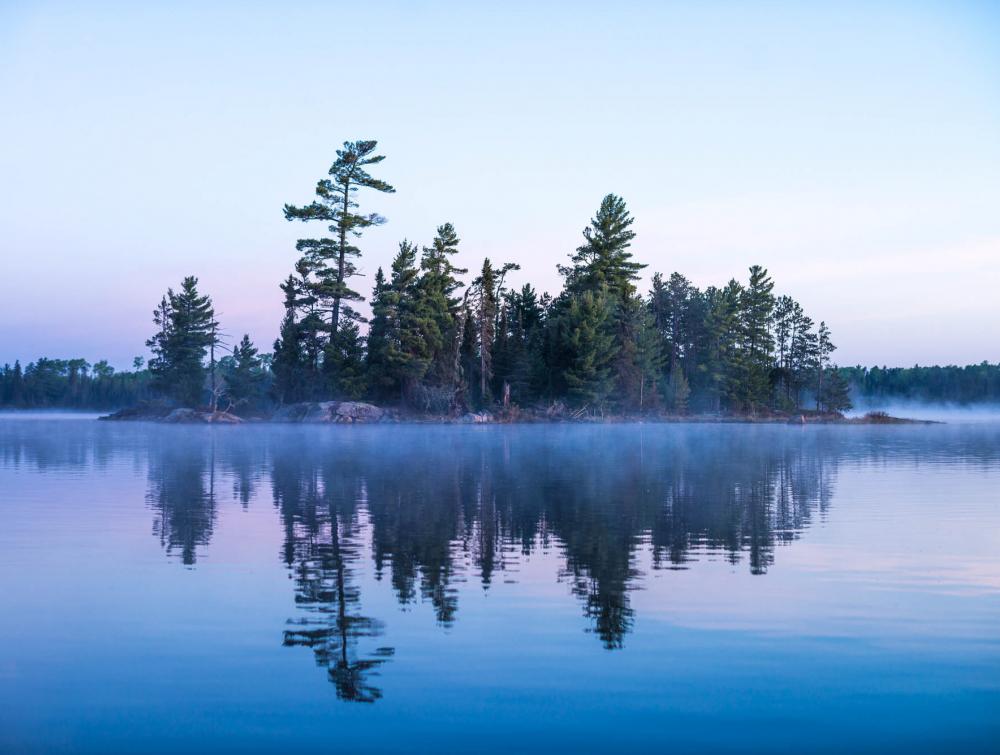Administration renews leases for toxic mining near Minnesota wilderness

Erik Fremstad
WASHINGTON (May 15, 2019) – Today The Wilderness Society strongly objected to the Trump administration’s renewal of two hardrock mining leases near the Boundary Waters Canoe Area Wilderness in Minnesota that would pollute America’s most popular wilderness area.
The Trump Administration has moved aggressively to make public lands in the watershed of the Boundary Waters available for industrial mining activity, including unlawfully reinstating expired mineral leases – and now renewing those same leases based on a deeply flawed environmental analysis and public process. This runs counter to earlier findings from the Forest Service that renewing the leases in this sensitive watershed poses too great a risk. Last year, U.S. Department of Agriculture Secretary Sonny Perdue canceled a proposed 20-year ban on mining activity in the watershed of the Boundary Waters, America’s most popular Wilderness Area.
Statement from Alison Flint, Director of Litigation and Agency Policy, The Wilderness Society:
“The administration has unlawfully renewed these leases in spite of overwhelming scientific evidence that the risks are just too great. It has done so based on a woefully inadequate justification that should not even be called an environmental assessment. The Bureau of Land Management refuses to even address the impacts of mining on the wilderness and makes a laughable finding that paving the way for toxic mining in the wilderness headwaters will not result in any significant impacts to the area’s pristine waters and unparalleled fishing and canoeing opportunities. The rush to approve mining in the region and unwind science-based decision-making by the previous administration violates the law, disregards the science and ignores widespread public opposition to mining in this beloved and vulnerable area.”
The Boundary Waters offers 1,200 miles of canoe routes and 18 hiking trails. The area also includes more than 1,000 lakes left by receding glaciers and hundreds of miles of streams.
The pollution resulting from sulfide-ore copper mining would inevitably harm the water quality and ecology of these protected public lands and waterways. The local economy – which is sustained by tourism and jobs connected to this fishing, canoeing, and camping mecca – would also suffer. In an August 6 letter to the Forest Supervisor at Superior National Forest, Harvard Economist James H. Stock predicted economic harm to the region if this mining were introduced in the Superior National Forest.
Last year, the Interior Department reinstated the two expired mineral leases, which date back to 1966. The Wilderness Society, Center for Biological Diversity, and the Izaak Walton League of America, represented by Earthjustice, filed a lawsuit in federal district court in Washington, D.C. challenging that decision. Today’s decision to renew those leases further paves the way for Twin Metals to build an industrial mining complex on the edge of the Boundary Waters Canoe Area Wilderness.
****
The Wilderness Society, founded in 1935, is the leading conservation organization working to protect wilderness and inspire Americans to care for our wild places. With more than one million members and supporters, The Wilderness Society has led the effort to permanently protect 111 million acres of wilderness and to ensure sound management of our shared national lands. www.wilderness.org
CONTACTS:
Alison Flint, Director of Litigation & Agency Policy, 303-802-1404, alison_flint@tws.org
Michael Reinemer, The Wilderness Society, 202-429-3949, Michael_reinemer@tws.org
